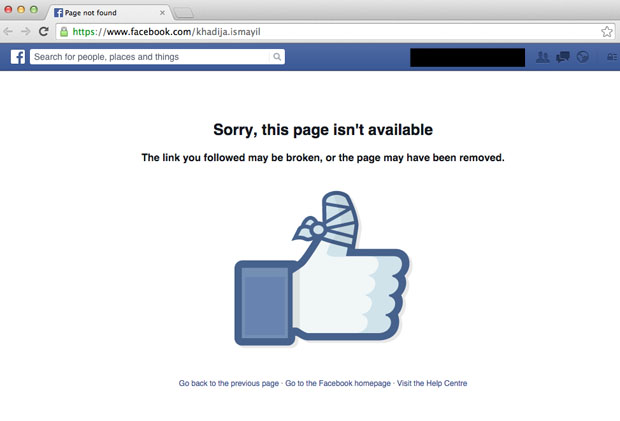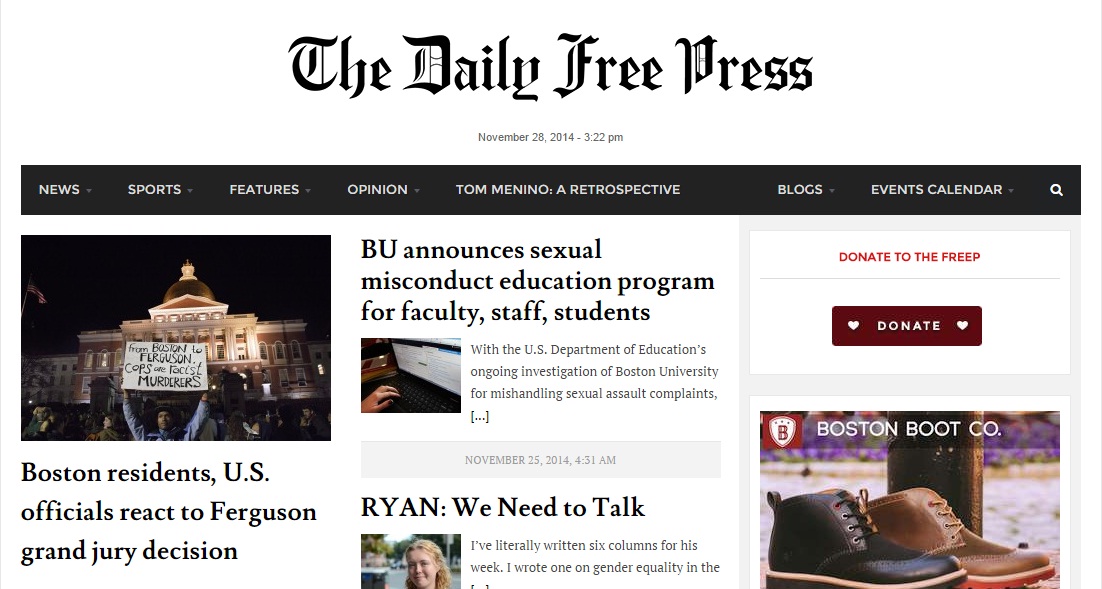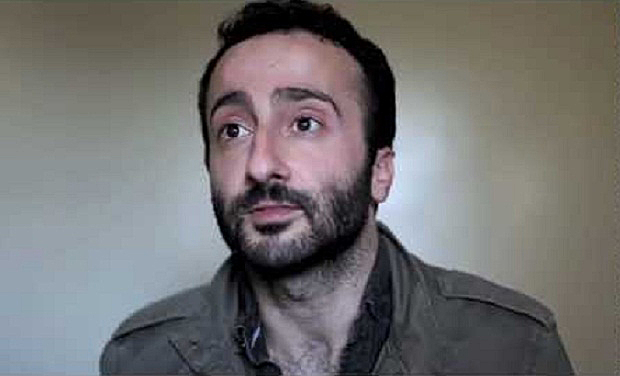5 Dec 2014 | Azerbaijan, Azerbaijan News, News

Khadija Ismayilova
The arrest of Azerbaijani investigative journalist Khadija Ismayilova today underscores the entrenched authoritarian instincts of the government of President Ilham Aliyev. Ismayilova was sentenced to a two month pretrial detention.
“The arrest of Khadija Ismayilova is part of Azerbaijan’s continued crackdown on free media and civil society. This confirms the pattern of intimidation and harassment perpetrated by authorities in an attempt to silence critical voices,” Melody Patry, senior advocacy officer at Index on Censorship, said.
Ismayilova’s arrest follows the earlier detentions of human rights defenders Leyla Yunus and her husband Arif Yunus; free speech advocate Rasul Jafarov; journalists Seymur Hezi, Parviz Hashimli, Nijat Aliyev and Sardar Alibeyli; and bloggers Omar Mamedov, Abdul Abilov and Rashad Ramazano. The country has starved the 2014 Index award winning Azadliq newspaper of resources, forcing it to suspend its print edition. The charges against all of the detainees range from hooliganism to illegal storage and sale of drugs.
Today’s action by Azerbaijan’s authorities also drew immediate criticism from Human Rights House Foundation Executive Director Maria Dahle and the OSCE Representative on Freedom of the Media Dunja Mijatović.
“This sentence does not come as a surprise: we assumed the authorities wanted to silence Khadija Ismayilova,” said Dahle. “The arrest has a chilling effect: one must now consider that every independent civil society leader in Azerbaijan is a target and can be arrested at any given time for any charge, as ludicrous as one can imagine. The international community, especially the Council of Europe, must now get a foot in the door to stop the repression, including by stopping further cooperation with Azerbaijan’s authorities”, Dahle added.
“The arrest of Ismayilova is nothing but orchestrated intimidation, which is a part of the ongoing campaign aimed at silencing her free and critical voice,” Mijatović said.
On Friday afternoon, Ismayilova’s usually very active Facebook page was also inaccessible.

Azerbaijan, which spends significant amounts on media relations, presents itself as a modern nation. But behind the smokescreen, the country has been carrying out a systematic suppression of civil society, journalists and independent media.
This article was posted on 5 Dec 2014 at indexoncensorship.org
28 Nov 2014 | Academic Freedom, News, United States

Independent student newspapers struggle in an increasingly digital world. Advertising revenue is shrinking. Budding journalists must learn how to fill the gap while maintaining news coverage free of administration censorship.
Of the more than 500 student newspapers in the US, Index spoke with two papers about their work and how they finance themselves independently.
“We really value our independent status because it allows us to be critical of the administration and be a watchdog of our university,” Kyle Plantz, editor-in-chief at Boston University’s Daily Free Press, said in an email interview.
The paper formed in 1970 after the university’s then president John Silber cut funding to two campus publications to prevent coverage of Kent State protests. As a result they merged to become the Free Press.
In recent years, Daily Free Press staff has written articles covering topics on campus such as gender neutral housing and students’ issues with the Student Activities Office, which oversees student organisations. In late 2011-2012, the paper provided extensive coverage of the arrest of two ice hockey players charged with sexual assault.
Nicole Brown, editor-in-chief at New York University’s Washington Square Press, also said her paper acts as a watchdog on the NYU administration.
“We need to be able to question our university and present information to the community,” Brown said. “We also need to be able to voice our opinions without fear of being punished for those opinions.”
The Washington Square Press keeps an open dialogue on campus through its feature, NYU Reacts. It includes students’ thoughts on topics ranging from ISIS subway threats to pro-democracy protests in Hong Kong. The paper also publishes articles on sensitive issues, such as a November 2013 piece in which NYU faculty express concern over the London campus’s rapid expansion.
Many student papers struggle to maintain steady revenue. Brown said the Washington Square Press relies on advertising, sold and managed by student staff.
“With a move toward more online content, there are more opportunities to sell ad spaces online, as well as in print,” Brown said.
For the Free Press, nearly $70,000 (£44,576.05) debt to their printers recently threatened to shutter their publication. They switched from publishing four days a week to once a week and, on 10 November, launched a crowd-sourcing campaign.
The paper surpassed their goal and raised over $82,000 in just three days, with Daily Free Press alumnus Bill O’Reilly donating $10,000 and local businessman Ernie Boch Jr. donating $50,000.
“[Reducing publication], along with cutting some other costs, we are able to continue to receive ad revenue and sustain our weekly print edition,” Plantz said. “We are assessing how we want to use [the extra funds] and what will be beneficial to our organization in the future.”
Independent newspapers must find a way to financially sustain themselves or campuses will lose reliable, student-run news.
As Plantz said, “We are one of the only outlets that allow students to have a voice, question authority, and be a place for students, faculty, staff, and the administration to come together to learn about what’s happening on campus.”
This article was originally posted 28 November on indexoncensorship.org
23 Oct 2014 | China, Digital Freedom, News

(Image: Screengrab from linecorp.com/en/)
The instant messaging app LINE has strengthened its censorship methods in mainland China, according to new findings from the Citizen Lab at the University of Toronto. The academic researchers not only found proof that the app now censors more topics than ever before, but also that LINE is censoring in a way that is harder to detect for the average user.
Want to discuss the China’s ruling Communist Party (CPC) with your friends on LINE? Go ahead. Compare foreign leaders to dictators? No problem, chat away. Unless you mention both the CPC and dictatorship in one chat message, you won’t notice LINE’s new censorship policy. That’s because LINE recently “improved” its censorship methods in China by adding almost fifty so-called regular expressions to its long list of taboo subjects; that is, groups of words that users are allowed to use independently, but not in combination.
The findings are interesting because LINE’s novel use of regular expressions allows a more subtle form of censorship, argues Jason Q. Ng, one of the researchers at the University of Toronto. “It allows for a more nuanced censorship for topics such as Xinjiang, instead of just a blanket block,” he told Pao-Pao over the phone, referring to the western province which has long been plagued by tensions between Chinese authorities and the indigenous Uighur people.
That’s positive for the authorities, he explains: “If you hide a smaller set of things, less people will encounter censorship than if you block everything related to a certain topic. Many people might want to speak in a so-called ‘legitimate’ way on a topic like Xinjiang, so if [the censors] block everything related to the topic, it will just make those people curious about the censorship, and the reasons behind its existence.”
Ng says that he thinks that the new method of censorship will only hinder the small minority of people already aware of the existence of censorship. One of the new, blocked combinations of words on LINE includes “Xinjiang”(新疆)and “independent” (獨立). Similar censorship techniques have already been implemented on Weibo, also known as Chinese Twitter.
There’s a whimsical name for the phenomenon that the Chinese authorities are trying to avoid with these new techniques: the Streisand effect, after American singer Barbara Streisand. In 2003, she attempted to suppress photographs of her residence in Malibu, California by suing a photographer. The lawsuit ended up inadvertently generating a storm of publicity: whereas only six people had viewed the photographs before the lawsuits — two of which were her attorneys — the case caused 420,000 people to look up the photos within the month.
But it is a serious principle, as demonstrated earlier this month, during the protests in Hong Kong which were in a sense also a prime example of the dreaded Streisand effect. After a few students were teargassed by the police in an effort to suppress their protest, local outrage and support only swelled, resulting in a much higher turnout at demonstrations on the following days.
The Citizen Lab researchers have been tracking and analyzing LINE’s censorship for close to a year. They have reverse engineered the application, finding that when the user’s country is set to China it will enable censorship by downloading a list of banned words from a website called Naver. Whenever the list is updated, they study the differences compared to previous lists.
In a post on their website, Citizen Lab also show users how they can change their regional settings, allowing them to circumvent censorship on LINE within China.
In Citizen Lab’s report on the new methods, the researchers conclude that the new list “demonstrates LINE Corporation’s continued commitment to filtering keywords for users based in China and a push to improve the underlying technology”.
Still, Jason Q. Ng says that it is hard to say whether LINE’s censorship is better or worse than other chat apps like WeChat. “For LINE it is easier to see the exact way they censor,” he says. “Normally we can’t do that: we have to test the app word by word. We are still working on WeChat. Also, it depends on the way you measure: some apps might censor less, but have the ability to surveil a lot. That might be worse for the users.”
This article was originally published at pao-pao.net
17 Oct 2014 | Lebanon, Middle East and North Africa, News

A play about censorship in Lebanon has unexpectedly been approved by the country’s Censorship Bureau — the body featuring heavily in the work.
La 3younak Sidna is the latest play by renowned Lebanese playwright and director Lucien Bourjeily and free expression organisation MARCH. Last year, his play Bto2ta3 aw ma Bto2ta3 (Will It Pass Or Not?), which deals with the restriction of free expression at the hands of the bureau, was banned. The new play tells this story and includes large parts of the script of the original piece. On Thursday, it was announced that it has been given the green light by authorities.
“After a long battle with the censorship authorities, we are excited to announce that the sequel of the censored play “Bto2ta3 aw ma Bto2ta3”, “La 3younak Sidna” produced by MARCH and directed by Lucien Bourjeily was approved by General Security!” read a Facebook statement from MARCH, which is producing the play.
“Here’s to hoping this is the first of many victories in the anti-censorship struggle in Lebanon, and that the General Security’s Censorship Bureau continues with this open-minded approach to the issue of freedom of expression,” the group added.
The ordeal surrounding Will It Pass Or Not saw Bourjeily nominated for an Index on Censorship Freedom of Expression Award in 2014. An extract from the play was published in last year’s winter edition of Index on Censorship magazine.
In May, he again ran into trouble with the General Security Directorate, the agency under which the Censorship Bureau operates. When trying to renew his passport ahead of a trip to London, it was confiscated with the message “You know what you did”. It was returned following huge media attention and an intervention by Interior Minister Nouhad Machnouk.
Bourjeily yesterday posted a jubilant statement through his Facebook profile: “This resounding Public Pressure success proves one thing: is that many times in Lebanon we’ve given up on our homeland just moments before we reach a better country… just moments before we succeed in breaking the chains of oppression and corruption… this time we won’t & we shouldn’t!! … THANK YOU… each & everyone of you for standing up against censorship & supporting freedom of speech! One small strategic battle WON: hopefully many others will follow!!”
Nominations for the 2015 Index on Censorship Freedom of Expression Awards are open. Nominate your free expression heroes.
This article was originally posted on 17 October 2014 at indexoncensorship.org





